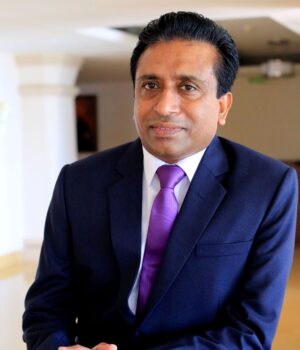PANAJI: According to Prof Irfan Mirza, Director/Principal, of Goa based V. M. Salgaocar Institute of International Hospitality Education (VMSIIHE); the new normal for the industry of the future will include vaccine passports, contactless check-ins at airports and hotels, transparency in communication to travellers, among other factors. He shared his thoughts under the topic ‘The World has Changed and so has Education’: The Impact of the Covid Pandemic on the Global Hospitality Industry’ at the prestigious Academy of Trainers event organised by Fórum Tourism in collaboration with Turismo de Portugal.
Held in Portugal every year, the event brings global leaders from the field of education onto a common platform to discuss and deliberate on education and how educators and trainers can innovate and adapt to the changing landscape.
Prof Mirza highlighted the impact the covid pandemic has had on the global business community and changed the way business is done the world over. The same is the case with the hospitality industry and hospitality education he said.
Mirza acknowledged that the road ahead had its fair share of challenges but shared that there are learnings and opportunities too.
“Businesses who manage to adapt to the changing landscape, strategise, innovate and rise above the challenges will stand a better chance to sustain themselves. And that’s why it’s all the more important to up-skill and upgrade our education curriculum to ensure that the managers and leaders of the future of this vibrant hospitality industry are equipped with the skill-sets required to lead the global industry into a new tomorrow,” said Mirza while addressing hospitality leaders virtually.
“The new normal for the industry of the future will include vaccine passports, contactless check-ins at airports and hotels, virtual menus, high levels of sanitation and hygiene and most importantly transparency in communication to travellers,” stated Mirza while advising academicians and trainers who impart knowledge to students of hospitality that it is critical that they introduce modules that tackle these issues and encourage curiosity and innovation.
Scheduled over six days, the virtual summit discussed a host of issues including digital education, promoting zero waste and reducing the carbon footprint in the food chain, sustainable practices, skills for the future and more.






